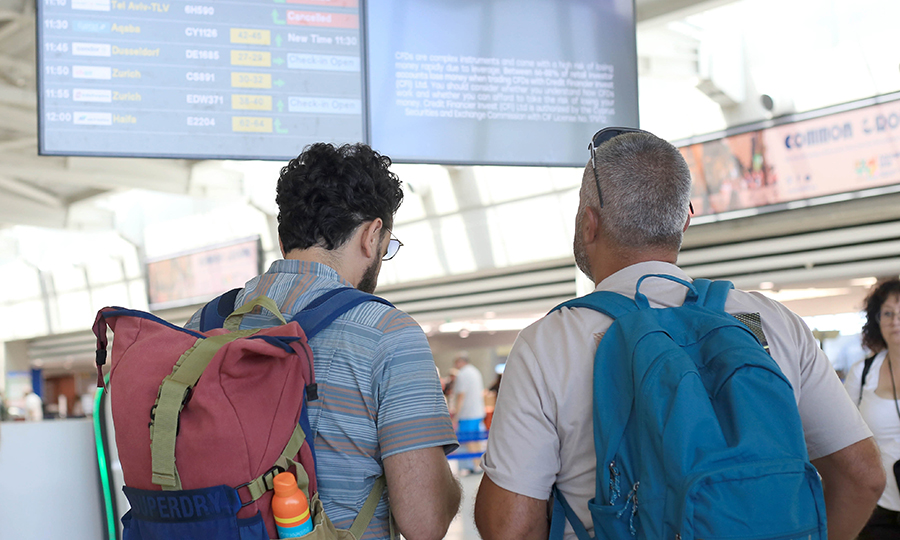

Yiannis Ioannou
As the Israel-Iran crisis reached its peak over the past two weeks, with direct military confrontation and U.S. involvement, Cyprus once again played a small but effective role in the safe evacuation of civilians. These evacuations, routed through Cyprus, are part of a responsibility the Republic began taking on in the region following the 2006 Israel-Hezbollah war in Lebanon.
The humanitarian corridors that enabled secure transport to and from Cyprus involved two main groups: Israeli nationals who either reside permanently in Cyprus or were left stranded on the island while trying to return home, and EU nationals seeking safe passage out of Israel due to ongoing strikes. These foreign nationals turned to Cypriot authorities for help reaching their home countries via Cyprus.
From the onset of the Israel-Iran flare-up, the Republic of Cyprus activated its “ESTIA” emergency plan in close coordination with the Joint Rescue Coordination Center (JRCC) in Larnaca.
314 evacuated via “ESTIA”

Since the crisis began, 314 citizens of EU and third countries have been evacuated from Israel through Cyprus under the ESTIA plan. One of the standout operations was a bilateral effort with France: 101 individuals, mainly French citizens or people of French origin, arrived safely in Larnaca on Tuesday morning aboard a scheduled flight.
France’s Foreign Minister Jean-Noël Barrot announced on X that the first military evacuation flight from Tel Aviv to Cyprus was preparing for takeoff, adding, “More will follow.” Cypriot authorities estimate that more such flights are likely, depending on how the situation develops. France already has another operation scheduled in the coming days for citizens whose travel plans were disrupted by the conflict or who need medical support.
Israelis head home
On Wednesday, June 25, more than 1,500 Israeli citizens are expected to fly out of Larnaca on 17 specially arranged flights. These are travelers who were stuck in Cyprus due to the conflict and are now able to return home or travel to Jordan, following the reopening of regional airspace after the ceasefire.
Officials at Hermes Airports told Kathimerini that while these flights are considered emergency departures, they are subject to constant rescheduling, given the fragile security situation in the region. Any renewed hostilities would once again lead to sudden airspace closures, flight diversions or cancellations.
Travel disruptions continue
Travel headaches at Larnaca Airport are expected to persist. Authorities and Hermes Airports are urging passengers to arrive up to three hours early, as the combination of emergency operations and the busy summer travel season is creating long lines at visa and security checkpoints.
*This article was translated from its Greek original































